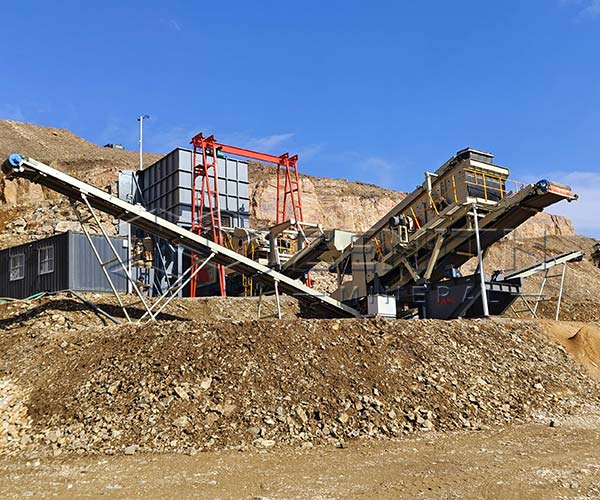Mobile vs Stationary Stone Crusher Prices in the Philippines
In the Philippines, stone crushers are essential in industries such as mining, construction, and waste recycling. They come in two primary forms: mobile and stationary crushers. The prices of these crushers vary significantly based on factors like type, capacity, and additional features.
Defining Mobile and Stationary Crushers in Simple Terms
Mobile Stone Crushers:
- Mobile crushers are machines designed for flexibility and portability. They are mounted on wheels or tracks, allowing them to be easily transported from one site to another.
- These crushers come in various forms, including jaw crushers, impact crushers, and cone crushers, each serving a different purpose in crushing stones.
- Their key advantage is mobility, which is particularly beneficial for projects that require frequent relocation or involve smaller-scale operations.
Stationary Stone Crushers:
- Stationary crushers, as the name suggests, are fixed at a specific location. They are generally larger and more powerful than mobile crushers.
- These crushers are used for larger-scale operations that require consistent and high-output production over extended periods.
- They are usually installed with other plant equipment like feeders, screens, and conveyors, forming a comprehensive crushing plant.
Price Ranges for Mobile Stone Crushers in the Philippines
Mobile stone crushers in the Philippines are available at a wide range of prices. Here are some typical price ranges:
Small Mobile Crushers (Lower Capacity Models):
- Price Range: ₱2.5 million to ₱5 million
- These crushers are generally compact and suitable for smaller operations or contractors who need to move between multiple project sites.
- Smaller models tend to have lower capacity, usually producing less than 100 tons per hour.
Mid-Range Mobile Crushers:
- Price Range: ₱5 million to ₱10 million
- Mid-range mobile crushers are used for medium to large-scale operations. They offer a higher output capacity and can handle harder materials such as granite and basalt.
- These crushers are ideal for construction companies and mining operations that require mobility and moderate production capacity.
High-End Mobile Crushers (Heavy Duty Models):
- Price Range: ₱10 million to ₱15 million
- High-end mobile crushers are the most expensive due to their powerful engines, advanced technologies, and ability to process large volumes of material.
- These crushers are typically used in large-scale projects or operations where mobility and high performance are essential.
Price Ranges for Stationary Stone Crushers in the Philippines
Stationary crushers are typically less expensive than mobile crushers, especially at the lower end of the market. Here are the typical price ranges:
1. Small Stationary Crushers (Lower Capacity Models):
- Price Range: ₱1.5 million to ₱3 million
- These crushers are designed for smaller production volumes and are often used for specific tasks in a fixed location.
- They are ideal for small construction sites or quarry operations where mobility is not a concern.
2. Medium-Scale Stationary Crushers:
- Price Range: ₱3 million to ₱7 million
- These crushers offer a balance between capacity and affordability. They are suitable for medium to large operations, where a more significant production output is required.
- Common in mining operations and larger construction projects, they provide good value over the long term due to their durability and efficiency.
3. Large-Scale Stationary Crushers (High-End Models):
- Price Range: ₱7 million to ₱10 million
- These crushers are used in large industrial plants that require high throughput and the ability to crush tough materials consistently.
- They are often part of an integrated crushing plant, which includes additional equipment like screens, conveyors, and feeders.
Advantages of Mobile Crushers: Why They Cost More
While mobile crushers come at a higher price, they offer several advantages that make them a worthwhile investment for certain types of projects:
1. Mobility and Flexibility:
Mobile crushers can be easily transported from one site to another, saving on transportation costs and improving operational efficiency.
This mobility is particularly beneficial for contractors working on multiple small to medium-scale projects.
2. Lower Installation Costs:
Unlike stationary crushers, mobile crushers require minimal setup. There’s no need for extensive infrastructure like concrete foundations or power supply installations.
3. Quick ROI for Short-Term Projects:
For short-term projects, mobile crushers offer quicker return on investment (ROI) because they can be quickly moved to the next project site, allowing businesses to continue earning revenue.
Advantages of Stationary Crushers: Why They Offer Value
Stationary crushers may have lower initial prices, but they offer long-term benefits that make them ideal for larger-scale operations:
1. Higher Capacity and Durability:
Stationary crushers are generally larger and built for heavy-duty operations. They can handle greater capacities, making them ideal for large-scale mining and construction projects.
2. Cost Efficiency in the Long Run:
Although stationary crushers are more expensive upfront, they offer lower operating costs over time. They don’t need to be moved frequently, reducing transportation expenses.
3. Longer Lifespan:
Stationary crushers tend to last longer because they operate in a fixed location and are less exposed to the wear and tear that mobile crushers face due to constant movement.
Final Thoughts: Which Crusher Is Right for You?
Choosing between mobile and stationary stone crushers largely depends on your specific needs:
- Mobile crushers are perfect for small-to-medium-scale operations requiring flexibility, mobility, and quick ROI.
- Stationary crushers are ideal for larger operations with high production requirements and longer project timelines.
- When considering prices, remember that the initial cost is just one factor. Maintenance, transport, and operational costs all play significant roles in determining the true cost-effectiveness of your crusher over its lifespan.
Before making a decision, evaluate the scale, duration, and mobility requirements of your project. By doing so, you can choose the best machine that fits your needs and maximizes your return on investment.

